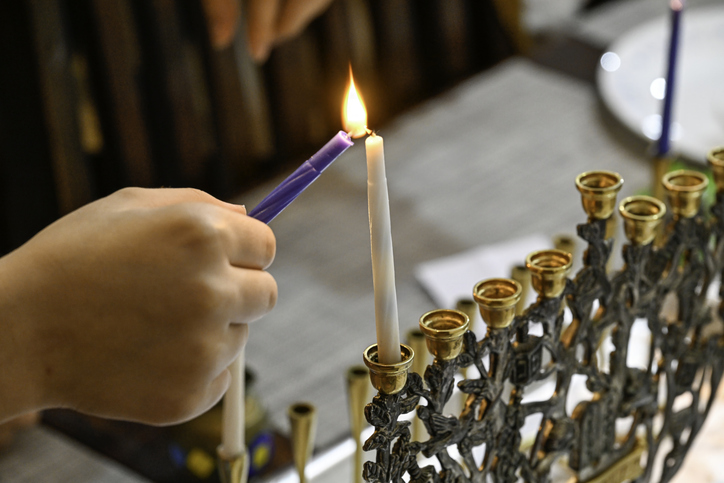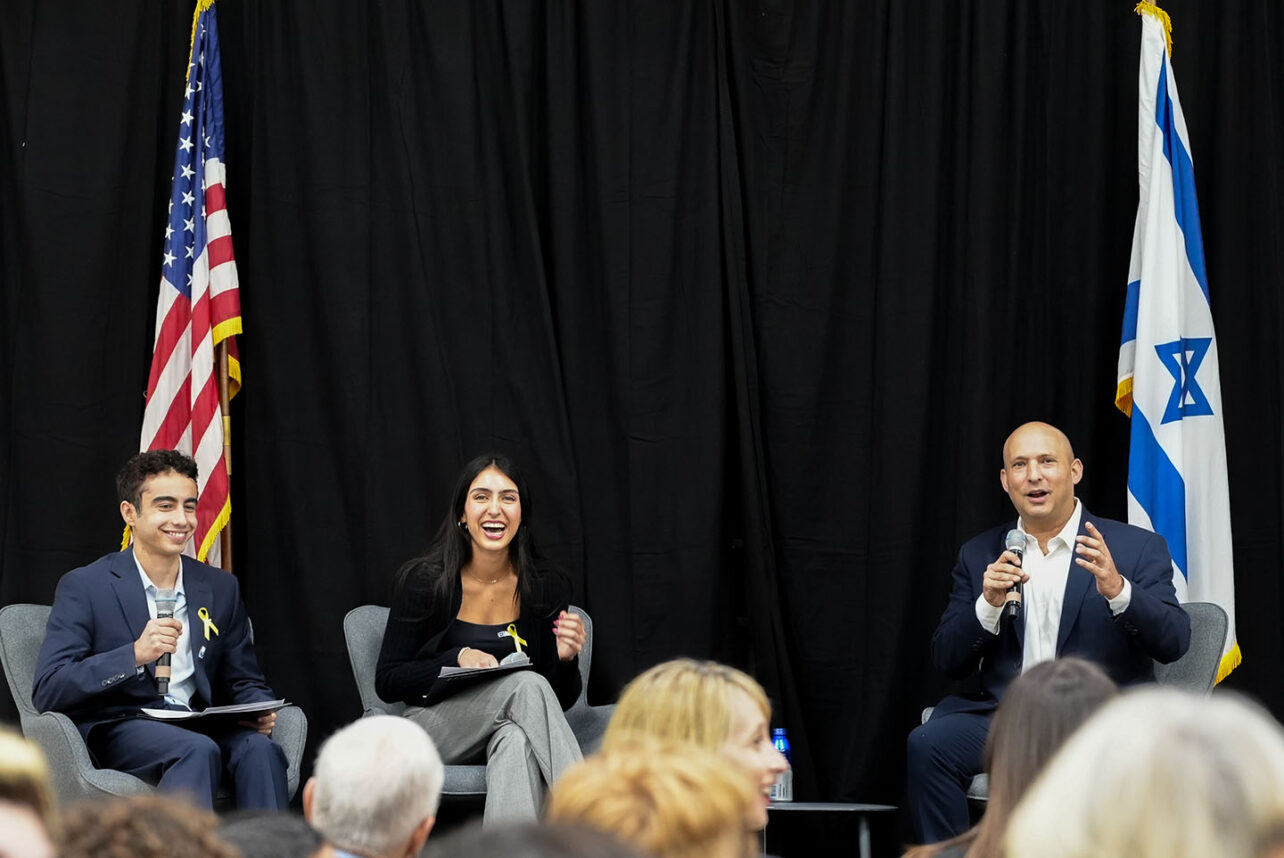Barack Obama is suffering from an enthusiasm gap among African American voters. A recent survey by the political Web site Daily Kos found that 68 percent of white voters can be expected to vote in the 2010 midterm elections, compared to only 33 percent of blacks. At the beginning of December, the Congressional Black Caucus criticized the Obama administration for providing insufficient attention to the issues African Americans care about. This came even as Obama has been dropping in voter approval among whites. While Obama can still count on unified black support, the one-two punch of a lack of enthusiasm among African Americans and declining approval among whites represents a real challenge to Obama and to the Democrats. Fortunately, he seems to be holding steady with Latinos, the most dynamic new voting bloc.
To anyone who has studied black mayors, this is a painfully familiar pattern. The promise and burden of the black mayor, and now the black president, is to be enough of a white person’s idea of what a black leader should be without being a black leader about whom other black people will not be very excited. Err in either direction and there are political repercussions. White voters will watch the black elected executive like hawks, on the lookout for evidence that he or she is favoring blacks. Other than the near-fatal Rev. Wright crisis, Obama has only once fallen into this trap, with his off-the-cuff comments on the confrontation between a black professor at Harvard and the Cambridge police.
In Los Angeles, Tom Bradley began in his losing mayoral campaign of 1969 against Sam Yorty as a heroic crusader. By 1973, he had become more acceptable to white voters than in 1969, but he was also less exciting. As mayor, he reminded one and all that he was not a black mayor, but rather a mayor who happened to be black. Like Obama, Bradley really was the person he said he was — a natural healer able to walk comfortably in all communities. He was particularly popular in the Jewish community, which in effect was his second political home.
But while most in the African American community supported Bradley, over time a sense of remoteness developed, due to the role Bradley played. People understood Bradley’s balancing act and that it also reflected who he really was, but he became less the go-to person who would address issues in the black community. During my research, I once spent a day traveling with Bradley in South Los Angeles. He was greeted everywhere with great warmth and respect, but also a bit of distance. People did not approach him and ask for things the way it happens with other politicians.
Late in his mayoralty, this burst into view when Maxine Waters, a power in Los Angeles’ black community, broke ranks and criticized Bradley for not doing enough for South L.A. While their breach was soon healed, it was a remarkable moment. It is indicative of the deep similarities between the Bradley and Obama experiences that, just recently, Congresswoman Waters took the lead in the Congressional Black Caucus in criticizing Obama for not doing enough for the black community.
But while the experience of black mayors helps us understand what is happening with Obama, there are differences, too. The president is the most important media personality on Earth, and every word, action and picture is weighed endlessly. As a black president, he is even more subject to constant oversight to make sure no favoritism is provided to his own group. Because there is a smaller ratio of blacks in the nation than there was even in Los Angeles under Bradley, which in turn was one of the least black cities with a black mayor, it would be impossible for Obama to be effective as a president who favors African Americans. He can’t take orders from the Black Caucus, nor should he.
Being president, though, gives Obama a chance to avoid some of the pitfalls of black mayoralties. He will have to make some adjustments in order to obtain those advantages.
Black mayors, like all mayors, are hamstrung by the limits of municipal power and resources. Having to keep business on board to create investment and having few tools to address inequality and poverty, black mayors often offer more symbolism than substance to black voters. J. Philip Thompson III’s study of New York’s Mayor David Dinkins (“Double Trouble: Black Mayors, Black Communities, and the Call for a Deep Democracy,” Oxford University Press, 2006) poignantly explores how black mayors, even with the best of intentions, are drawn away from responding to the needs of the black poor. But black mayors also often can do little to help working-class white voters, whose racial resentments were fueled by economic insecurity.
The president, by contrast, is the most powerful politician on Earth, heading a government with a vast ability to spend and borrow that allows him or her to truly fight inequality. Helping voters of all races who are struggling economically also works politically. Obama discovered this during the campaign when he finally grabbed the economic issue head on. While the economic crisis has hit whites and blacks differently (blacks much harder), the same issues resonated then as they do now: foreclosures, jobs and affordable health care. On the campaign trail, every day that candidate Obama talked about these issues was a good day.
In the first months of his presidency the glow continued, with President Obama basking in high approval ratings and passing a major economic stimulus package through Congress. With health care on the table, the future seemed bright. When the health care bill was in the House of Representatives, with its feisty stew of ideologies and groups, Democratic voters could see people who looked like them fighting for their health care. But then the action moved to the Senate — a clubby institution in which there is only one black senator, an appointee not running for re-election — and there the White House has made sure to avoid any association with the kind of liberal members who might be known among African Americans as fighting for their interests.
Instead, the White House has emphasized winning the support of Republicans and Blue Dog conservative Democrats, whose main goal seems to be to do less of whatever is being proposed. The process slowed to a crawl, and as far as the public knew, Obama and the Democrats were in no rush at all to complete the task and were spending all their time trying to find compromises to accommodate senators who wanted to do less.
I am not arguing that Obama should racialize his presidency, but I do hope he will more visibly associate with those who are trying to help working people of all races. Such a strategy could even help the recalcitrant Blue Dog representatives keep their seats in 2010, whereas bringing them front and center in health care has made them targets in their own states, and a low Democratic turnout will destroy them without a new strategy. Mobilizing apathetic minority voters on the weekend of the election is a poor substitute for the year-round mobilization that really works.
How this might be done can be seen in the example of the foreclosure crisis. The administration is belatedly but wisely moving toward policies to reduce principal on troubled loans. This will help everybody who is under water, but it will be particularly welcome among African Americans. Likewise, any jobs program will help everybody, but it will especially help those minority communities with the highest unemployment. On health care, the decision by Majority Leader Harry Reid to bring liberal and conservative senators into the same room to negotiate instead of just highlighting the conservatives is a big step forward. The vision of liberal and conservative Democrats hashing out health care reforms is just the right one to put forward. Using money returned from the Treasury by bailed-out banks on a targeted jobs program instead of largely for deficit reduction is another major step being contemplated.
In the area of voting rights, though, Obama can respond directly to the African American community without alienating whites. He has an African American attorney general in Eric Holder whose face has not been very prominent in the administration, and underplaying Holder is a lost opportunity both in image and substance. African Americans have looked to the Justice Department for, well, justice, since Robert Kennedy was attorney general. Under Bush, the Justice Department actively assaulted minority voting rights — the search for ways to undermine minority voting was the cause of the purge of U.S. attorneys. Yet, even under Holder, the Obama administration has been slow to replace those Bush-appointed U.S. attorneys and has made few visible efforts to protect voting rights. It is time, and it is wise to make those replacements visibly.
Race will always complicate Obama’s historic presidency. He cannot have any hope of keeping his party in power if he loses white support. And yet, if he is able to respond to at least some of the aspirations of the African American community, even indirectly, he will deepen his presidency and promote the very healing that he so profoundly embodies and aspires to achieve. Letting voters of all races see the full range of leaders in Congress and his administration, including those who are leaders in progressive and minority communities, will enliven and not endanger the Obama presidency.
Raphael J. Sonenshein, chair of the Division of Politics, Administration and Justice at Cal State Fullerton, is the author of “Politics in Black and White: Race and Power in Los Angeles” (Princeton University Press, 1993).





















 More news and opinions than at a Shabbat dinner, right in your inbox.
More news and opinions than at a Shabbat dinner, right in your inbox.